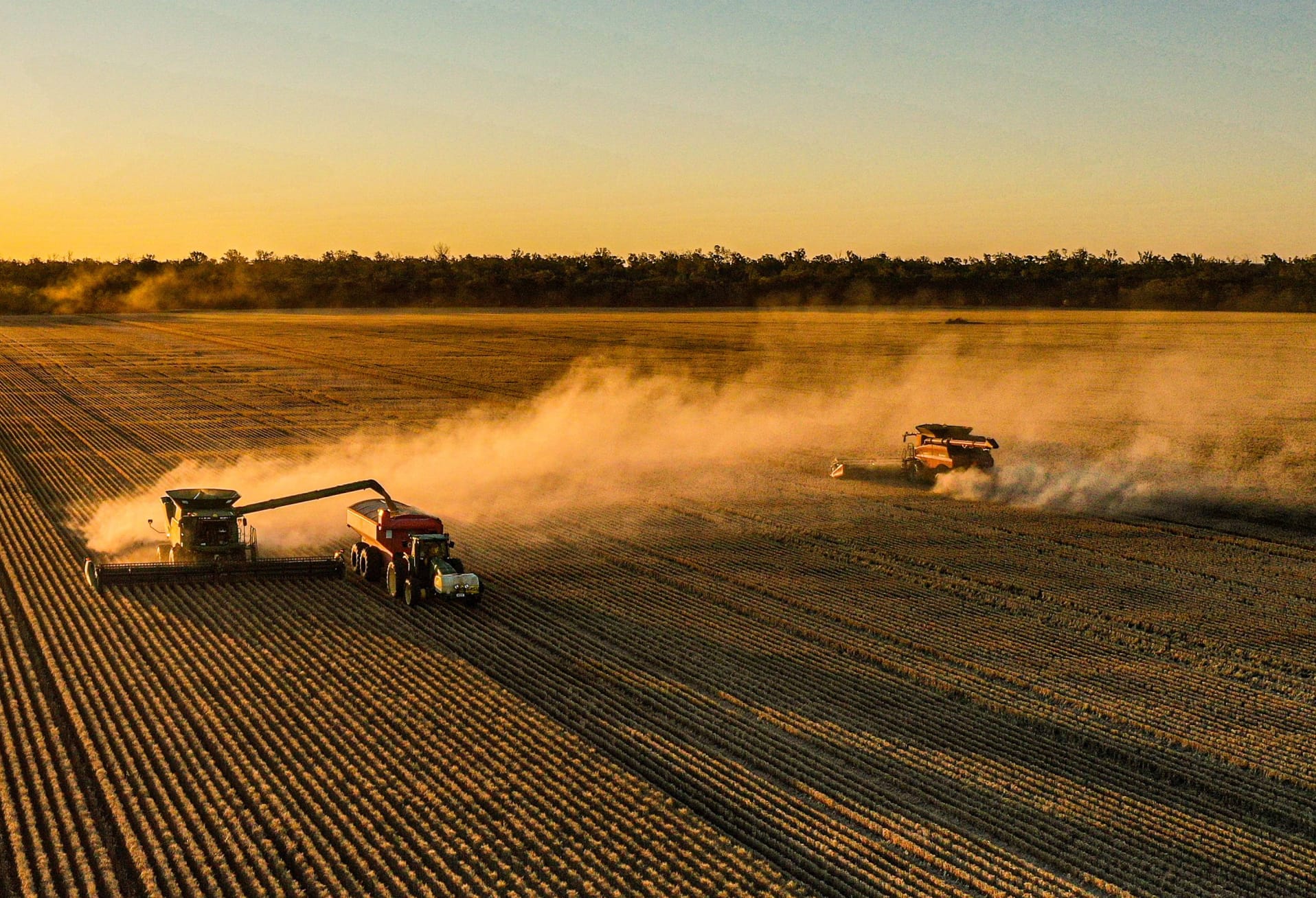“When you think you know it all – you’re in strife”
Property: Karyrie Nominees
Andy farms with his wife Sarah, parents Helen and Keith and brother Lachlan at Birchip.
Enterprises: wheat, barley, lentils, canola, chickpeas and vetch and merino ewes producing fat lambs.
Rainfall: 30.5mm (April-June), 43 mm (January-April)
Andrew, or Andy, takes a realistic and life-long-learning approach to farming. He’s been home on the farm since 2001 after working in Hamilton as an agronomist with Elders and studying Agribusiness at Dookie College and Monash University.
Now he lives in Birchip with his wife Sarah and three young children, Emily, Charlie and Olivia. Sarah, a former lawyer, is studying education, and is involved in the business management aspects of the farm.
Long and short-term decision making
By late June 2018, all crops had emerged but Andy was looking for the next rain – and he isn’t expecting a bumper year.
Due to the dry start and to manage chemical residue, the decision was made to reduce their canola acreage from 40 per cent in 2017 to 5 per cent this year. The balance has been supplemented with more fallow, vetch and feed barley.
The dry start has diminished the Barbers’ sheep feed reserves. “We’ve fed out a lot of grain this year,” he said.
The Barbers made the switch from Compass barley to Spartacus two years ago.
“Paddocks with Compass barley were our best looking crops in August, but by harvest they had lodged. We had losses of 30 per cent yield or more,” he said.
Andy says Spartacus offers them more group B weed control options and they will utilise crop topping as an effective weed control method in barley if it’s needed.
Challenges
Soil type is a “huge challenge” on farm. Getting an even establishment on heavy and light soil in one paddock is difficult. A dry finish also results in crops hold on in the light soil and give up on the heavy. The Barbers will often manage these areas differently by adjusting inputs such as urea based on yield potential.
Risk management is another major challenge.
“We’ve got to figure out how to get through the bad times with the right enterprise mix,” but added “that’s what keeps you on your toes.”
The year ahead
Andy says they’ll need six more inches of growing season rainfall to have a great season. “We’d normally be putting out urea at this time of year but we’re holding off just now”.
“We adjusted our rotation based on the dry and late start, I hope it was the right decision given the latest ‘El Niño watch’ from the Bureau of Meteorology,” he said.
“The subsoil moisture just isn’t there. We’ll get something but the chances are it will be a lot less than yields received in the last two years.”
In terms of future trends, Andy feels the domestic feed market was improving; “right now, feed barley looks to be a good option, even though this may change in the future.”











